Conflict Zones
‘We just want peace’: A pacifist community amid Ethiopia’s Amhara conflict | Conflict News

Awra Amba, Ethiopia – Aregash Nuru pointed at the rolling green landscape in Ethiopia’s central Amhara region. “We used to watch sunset from the hills,” she said with a sigh. “But no more.”
These days, it is too dangerous to risk leaving the safety of the village, according to Nuru, a 30-year-old accountant and local tour guide. Gunshots can sometimes be heard from afar. Locals have been kidnapped. Schools have been forced to shut.
“The political situation has changed everything,” added Nuru, staring down at the ground in sadness.
For decades, violent insecurity and conflict have struck many parts of Ethiopia – none more so than during the Tigray conflict between 2020 and 2022, which led to the deaths of some 600,000 people in the East African nation, estimates have found.
But one place that had remained relatively untouched was the village of Awra Amba, set in the highlands of Amhara. The community, which was founded in the 1970s, is a pioneering utopian project home to about 600 people who live by strictly egalitarian rules, including the equal division of work by gender.
Over the years, Awra Amba has gained recognition for its efforts, winning awards for its approach to conflict resolution – which includes special dispute meetings and democratically-elected committees – as well as its emphasis on peace. Officials from the Ethiopian government and international bodies such as the United Nations, the Red Cross and Oxfam have come to observe the community’s famed example.
However, during the past two years, a deadly conflict has taken hold in Amhara – a region home to the UNESCO-protected rock-hewn churches of Lalibela and the historic fortress of Gondar – as the armed group Fano has violently clashed with federal government soldiers of the Ethiopian National Defense Force (ENDF).
Since the conflict began in April 2023, after Prime Minister Abiy Ahmed attempted to dissolve regional forces into police or federal military, there have been reports of mass gender-based violence and thousands of murders perpetrated by both the ENDF and Fano, who are demanding full control of territory they claim is theirs.

The nonprofit International Crisis Group has called the development an “ominous new war”. Amnesty International has called for global attention to this “human rights crisis” while Human Rights Watch has condemned “war crimes” committed by the ENDF.
“There is a trauma now in the region, there has been devastation,” said Bantayehu Shiferaw Chanie, a research associate at the Centre for International Policy Studies in Ottawa, Canada, who is from Amhara and worked in Ethiopia until July 2023.
In turn, the pacifist community of Awra Amba has been caught up in the crossfire of the spiralling conflict.
Economy upturned
Nuru is a member of the community’s cooperative, which pools all of its income and resources together. They use the funds for projects, including a care home for the elderly, support for orphans and a welfare charity to help people in need. But the once-thriving, self-sufficient economy has been turned on its head, Nuru said.
Awra Amba once welcomed thousands of visitors a year – domestic and international tourists alike, as well as classes of schoolchildren – who could stay at an on-site lodge and buy the community’s products, such as handwoven garments and textiles.
But overnight, that income has evaporated.
“There used to be many foreigners who came to visit,” said Worksew Mohammed, 25, another former tour guide in Awra Amba. “We were so happy to share our story of peace with them. But now there are none. It is too dangerous for them to come here.”
Community members are even fearful of travelling to markets to sell their agricultural produce, such as maize and teff, a popular grain in Ethiopia, since robberies by gangs along the highway are now common due to the prevailing state of lawlessness.
“Trade has been impacted,” said Ayalsew Zumra, a 39-year-old community member. “Going to other towns is difficult, sometimes it is not safe. That means we can’t transport the produce. But that’s how we make most [of our] income.”

Community members, who live in humble adobe homes and plough the fields with oxen, are also being affected by the ongoing conflict in other ways. In attempts to hinder rebels, the Ethiopian government routinely blocks the internet across the Amhara region, the second most populous in the country.
Alamu Nuruhak, a 24-year-old studying IT at university, was back in Awra Amba, where he was born and raised, to visit his family. However, due to the blackout, he could not study.
“It’s difficult here to get anything done,” said Nuruhak.
The community has also been forced to shut down a school, for which it provided half the funds during its construction in 2019 and then donated to the state, due to the complexities of the conflict and this perceived association with the government. Last year, Fano fighters descended on Awra Amba and demanded that teaching stop immediately.
“The government wanted the school to continue operating, but the other forces [Fano] didn’t want to continue the learning process,” said Zumra. “The conflict … it affects everyone.”
Devastation will cause ‘larger crisis’
Then terror rippled across Awra Amba last year when a villager was kidnapped by unidentified armed men who demanded 1 million Ethiopian birr ($7,900) for his return – a huge sum that the community has been unable to pay in full.
In the meantime, the community’s founder, Zumra Nuru, and his son have fled to Ethiopia’s capital Addis Ababa. Locals say his son was also the target of an attempted abduction as armed men came searching for him one day – but he was out of town.

Chanie, the researcher, says the Amhara conflict will persist unless there is a significant turnaround in Abiy’s policy towards Fano and that they are given – as promised by the prime minister – genuine political representation.
Fano fought beside federal troops during the two-year conflict in Tigray, but in the aftermath, Amhara people from outside Abiy’s party, including Fano, were not included in negotiations that resulted in the Pretoria peace deal in November 2022.
The roots of Fano – an Amharic term meaning “freedom fighter” – date back to the grassroots forces that rose up against the Italian fascist occupiers of Ethiopia in the 1930s, but today it is a largely informal coalition of several volunteer militias in the region that has gained widespread popular support in its fight for Amhara interests.
“There is a lack of political representation of Amharas in Abiy’s ethnic federalism,” said Chanie.
“The prime minister and his government didn’t keep their promises. He has just conserved his power. He consolidated his power, so it’s just a one-man show.”
For now, the conflict rages on in Amhara.
A June 2024 report by the UN Office of the High Commissioner for Human Rights found that federal forces carried out torture, rape, extrajudicial executions and murders of civilians, and that Fano militias were responsible for killings of civilians, attacks on civilian objects and unlawful arrests. Some four million children are reportedly out of school due to the violence in the region.

“As we see in the Amhara, nothing has been resolved through military action. So we need a clear, serious conversation between political groups,” said Chanie. “If the conflict continues, the devastation will result in a larger crisis. State collapse could lead to a bigger risk of regional insecurity.”
In the meantime, the people of Awra Amba in the remote highlands of Ethiopia are dreaming of a peaceful resolution.
“We just want peace,” founder Zumra Nuru, now 76, told Al Jazeera at his current home in Addis Ababa. “We believe that all conflicts can be resolved with reasonable discussion and debate.”
It is not the first time that the community of Awra Amba has been caught up in political strife, he added.
In 1988, during the Derg regime, a communist military government that ruled Ethiopia for nearly two decades, they were accused of supporting the opposition and were forced to flee their land.
The villagers were able to return only in 1993, two years after the regime’s authoritarian time in power came to an end.
“We have survived struggles in the past,” said Nuru. “By working together, by seeing what joins us, not what divides us, we can put an end to this suffering and bring peace to Ethiopia.”
Conflict Zones
Sudan Paramilitary Claims Key Gains in Kordofan; Fighting Intensifies Near Khartoum

Khartoum, May 30, 2025 — Rapid Support Forces (RSF) deputy leader Abdel Rahim Daglo announced on Friday that RSF fighters would press their eastward advance toward Khartoum, claiming “great victories” in several strategic towns across Kordofan. Addressing troops at an undisclosed location, Daglo said that all armed groups within the Tasis coalition had joined his paramilitary ranks and were now operating in concert with the RSF.
According to Daglo, RSF units seized control of Al-Dubaibat and Al-Hammadi in South Kordofan state, as well as Al-Khawi in neighboring West Kordofan. “Our fighters have secured these areas after intense clashes with Sudanese Armed Forces (SAF) units and allied militias,” Daglo declared, adding that the momentum would not wane until the capital was within reach.
Sudan’s army, however, downplayed recent RSF advances as part of a “reorganization” campaign. A senior ally of the SAF—also the governor of Darfur—insisted that the military was regrouping and fortified its positions to counter what he described as “a temporary setback.” He maintained that the SAF’s strategic reserves remained intact and that front-line forces were being repositioned to mount a sustained defense of Khartoum.
As fighting has spread northward, the humanitarian situation in Khartoum has deteriorated sharply. With basic services all but collapsed, a deadly cholera outbreak has emerged in the densely populated capital. Aid agencies warn that the impending rainy season could exacerbate sanitation challenges, fueling further disease transmission. The United Nations has labeled the crisis “the world’s worst humanitarian emergency,” citing over 25,000 confirmed deaths and more than 3 million internally displaced persons since April.
International pressure has also mounted on Sudan’s transitional government. In late May, Washington imposed sanctions on Sudanese military leaders for the “alleged use of chemical weapons” against civilians. In response, the government announced a national investigation into the claims—a move it said was aimed at preserving Sudan’s international standing amid intensifying conflict.
With both sides entrenching their positions around Khartoum, observers warn that a protracted stalemate could unleash further civilian suffering. The RSF’s pledge to advance eastward has raised concerns that front-line engagements may spill into densely populated suburbs, where millions have already endured weeks of intermittent shelling and aerial bombardments. For now, the fate of Khartoum—and the broader prospects for peace—remain uncertain as paramilitary and army forces brace for a decisive showdown.
Conflict Zones
Two killed in Russian attacks on Ukraine before possible talks in Turkiye | Russia-Ukraine war News
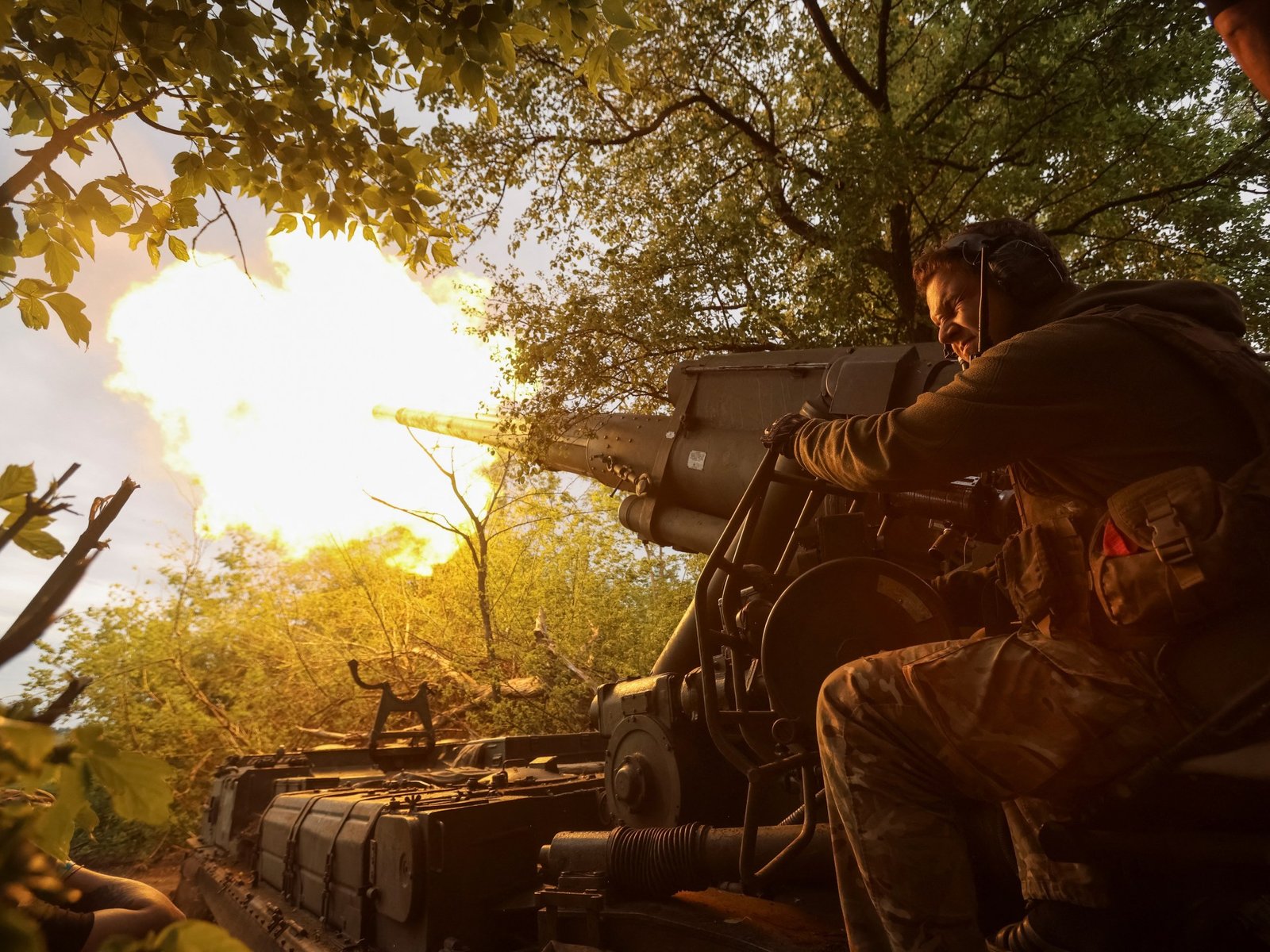
Russia has confirmed it will send a delegation to Istanbul, but Kyiv has not yet accepted the proposal.
Russian drone and missile attacks on Ukraine have killed at least two people, according to officials, as Ukraine ordered the evacuation of 11 more villages in its Sumy region bordering Russia.
Russian troops launched an estimated 109 drones and five missiles across Ukraine on Friday and overnight, the Ukrainian air force said on Saturday, adding that three of the missiles and 42 drones were destroyed and another 30 drones failed to reach their targets without causing damage.
The attacks came amid uncertainty over whether Kyiv will take part in a new round of peace talks early next week in Istanbul.
In the Russian attacks on Saturday, a child was killed in a strike on the front-line village of Dolynka in the Zaporizhia region, and another was injured, Zaporizhia’s Governor Ivan Fedorov said.
“One house was destroyed. The shockwave from the blast also damaged several other houses, cars, and outbuildings,” Fedorov wrote on Telegram.
A man was also killed by Russian shelling in Ukraine’s Kherson region, Governor Oleksandr Prokudin wrote on Telegram.
Moscow did not comment on either attack.
Meanwhile, authorities in Ukraine’s Sumy region said they were evacuating 11 villages within a roughly 30-kilometre (19-mile) range from the Russian border.
“The decision was made in view of the constant threat to civilian life as a result of shelling of border communities,” the regional administration said on social media.
Ukrainian President Volodymyr Zelenskyy has said some 50,000 Russian troops have amassed in the area with the intention of launching an offensive to carve out a buffer zone inside Ukrainian territory.
Ukraine’s top army chief, Oleksandr Syrskii, said on Saturday that Russian forces were focusing their main offensive efforts on Pokrovsk, Torets and Lyman in the Donetsk region, as well as the Sumy border area.
Syrskii added that Ukrainian forces are still holding territory in Russia’s Kursk region – a statement Moscow has repeatedly denied.
The evacuations and attacks came just two days before a possible meeting between Kyiv and Moscow in Istanbul, as Washington called on both countries to end the three-year war.
Russia has confirmed it will send a delegation, but Kyiv has not yet accepted the proposal, warning the talks would not yield results unless the Kremlin provided its peace terms in advance.
Zelenskyy said Saturday it was still not clear what Moscow was planning to achieve at the meeting and that so far, it did not “look very serious”.
Conflict Zones
Hegseth warns of China threat as Beijing’s top brass skip Singapore summit | Military News
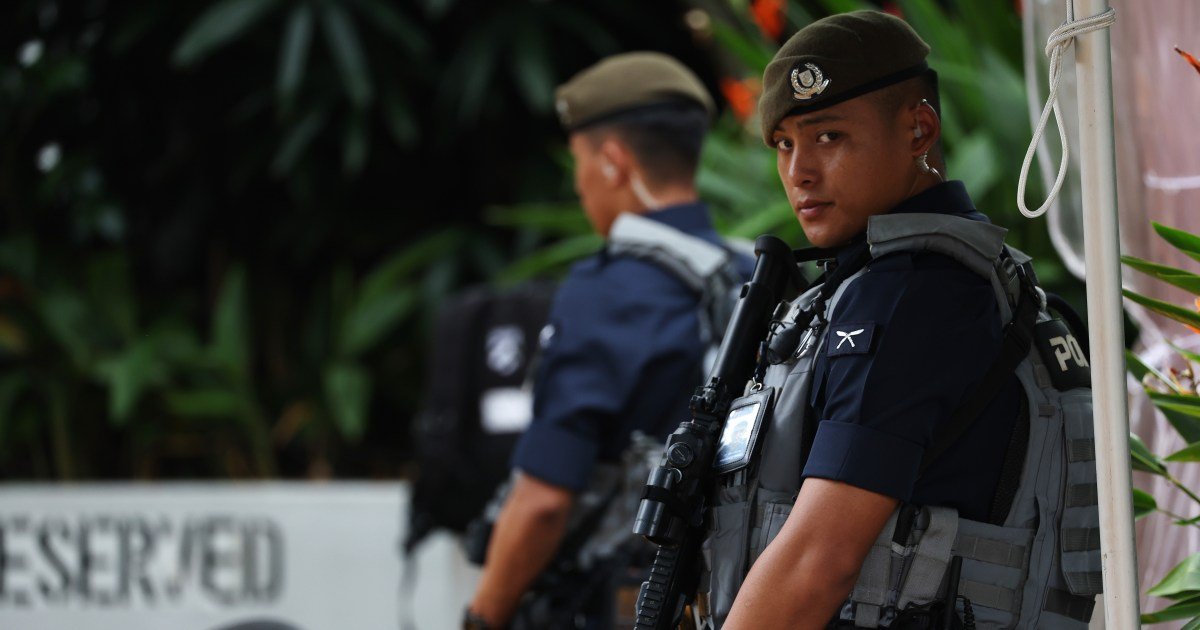
Singapore – Of the many military officials darting across the lobby of Singapore’s Shangri-La Hotel this weekend, there has been one significant absence.
China’s Defence Minister Dong Jun skipped the annual Shangri-La Dialogue, Asia’s premier security forum, with Beijing sending a delegation of lower-ranking representatives instead.
It was the first time since 2019 that China has not dispatched its defence minister to the high-level dialogue on regional defence, except when the event was cancelled in 2020 and 2021 due to the COVID-19 pandemic.
Beijing’s decision raised eyebrows in Singapore, coming at a time of heightened tensions between China and the United States – the world’s two biggest superpowers.
Dong’s absence meant there was no face-to-face meeting with his US counterpart, Secretary of Defence Pete Hegseth, who had the floor to himself on Saturday when he told the defence forum that the military threat posed by China was potentially imminent.
“It has to be clear to all that Beijing is credibly preparing to potentially use military force to alter the balance of power in the Indo-Pacific,” Hegseth told delegates in Singapore.
Pointing to China’s regular military drills around Taiwan as well as increasingly frequent skirmishes in the South China Sea, Hegseth said Beijing was proactively harassing its neighbours.
“There’s no reason to sugar-coat it. The threat China poses is real, and it could be imminent,” Hegseth said.
He also pointed to China’s growing military assertiveness as a reason for Asian nations to boost their defence spending, pointing to Germany, which has pledged to move towards spending 5 percent of its gross domestic product (GDP) on defence.
“It doesn’t make sense for countries in Europe to do that while key allies in Asia spend less on defence in the face of an even more formidable threat,” Hegseth said.
The defence chief also looked to reassure Asian allies that Washington was committed to Asia Pacific security despite strained ties in recent months as US President Donald Trump targeted some close allies with hefty trade tariffs.
“America is proud to be back in the Indo-Pacific, and we’re here to stay,” he said, opening his speech.
Some analysts were quick to play down the severity of Hegseth’s warnings about China.
“Short of a very few countries, not many in this part of the world see China as an imminent threat and would up their [defence] spending,” said Dylan Loh, assistant professor in the public policy and global affairs programme at Singapore’s Nanyang Technological University.
China tight-lipped on defence chief’s absence
In previous years, the Shangri-La Dialogue had provided a rare platform for meetings between Chinese and US officials in the more informal surroundings that the summit could offer.
The structure of the schedule also allowed Beijing’s military chiefs to directly respond to the keynote speech from the US defence secretary and to present their narrative to other members of the Asia Pacific.
Beijing has remained tight-lipped on the reason for Defence Minister Dong’s absence from the forum, fuelling an information void that has been filled by speculation.
One theory is that China did not want to send a high-profile delegate to the event at such a sensitive time as Beijing navigates the tariff war with the Trump administration.
“Any sort of faux pas or comments that may go off script can be picked up and picked apart or misconstrued,” said Loh, of Singapore’s Nanyang Technological University.
“So the question is why take the risk when US-China relations are at a very delicate point at this moment,” Loh told Al Jazeera.

The Shangri-La Dialogue weekend has not always been the easiest occasion for Chinese defence ministers. In recent years, they have faced difficult questions from their counterparts in other countries, who are unhappy with Beijing’s increasing assertiveness in the Asia Pacific region.
Loh said this could be another factor in Dong’s absence from the high-profile event.
“Any Chinese defence minister coming to Singapore now will be exposing himself and the country to political risk,” he said. “Themes like the South China Sea and possibly Taiwan will emerge, which makes China a convenient target,” Loh added.
Dong was appointed as China’s defence minister in late 2023, after his predecessor, Li Shangfu, was removed from office.
Less than a year into the job, there was speculation surrounding Dong’s new position following media reports that he was under investigation as part of a wider investigation into corruption in the Chinese military. Beijing denied the reports, with the minister continuing to maintain a public profile despite the allegations.
There has also been intense scrutiny of China’s military, following reports of an apparent purge of top-level officials by President Xi Jinping.
One of Beijing’s most senior generals, He Weidong, was missing from a high-profile political meeting in April, adding to rumours surrounding a possible restructuring in the People’s Liberation Army (PLA).
Ian Chong, a nonresident scholar at the Carnegie China research centre, said such speculation could be a factor in Dong’s no-show in Singapore.
“Because of the domestic turmoil with China’s senior military, they perhaps don’t want to, or the PLA itself feels that it’s not in a position to send somebody senior,” Chong told Al Jazeera.
Announcing Dong’s absence at a news conference before the summit, Chinese military spokesperson Senior Colonel Zhang Xiaogang maintained that communication channels were still open between defence officials in Washington and Beijing.
“China places great importance on US-China military ties, and is open to communication at different levels,” Zhang said.
-

 Africa4 days ago
Africa4 days agoSurvivor of Liverpool car ramming talks of shock and panic
-

 Sports3 days ago
Sports3 days agoThe Knicks are bringing hope and title dreams back to New York after years in the doldrums
-

 Lifestyle3 days ago
Lifestyle3 days agoFaizan Zaki hopes to go from spelling bee runner-up to champ
-

 Lifestyle3 days ago
Lifestyle3 days agoChildren and careers: Talking to kids about what they want to be when they grow up
-

 Lifestyle4 days ago
Lifestyle4 days agoHow to decorate a patio, balcony or other small outdoor space
-
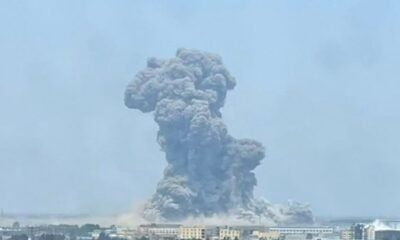
 Asia5 days ago
Asia5 days agoHuge blast rocks Chinese chemical plant, authorities launch rescue operation
-
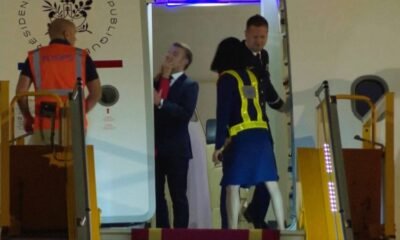
 Europe5 days ago
Europe5 days agoMacron’s marital shove disappears from French airwaves
-
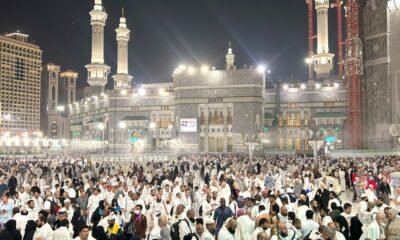
 Middle East4 days ago
Middle East4 days agoHajj pilgrimage in Saudi Arabia to begin on June 4 | Religion News




